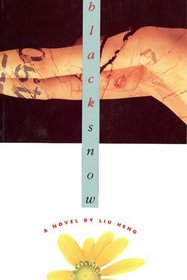Search -
Black Snow
Black Snow
Author:
In 1989 a remarkable film, Ju Dou, banned in China for depicting adultery, was released to worldwide acclaim and nominated for an Academy Award. The film was adapted from the first novel by Liu Heng, one of China's most important young writers. — Black Snow is Liu Heng's second novel, and it will prove to be equally unsettling. Li Huiquan... more »
Author:
In 1989 a remarkable film, Ju Dou, banned in China for depicting adultery, was released to worldwide acclaim and nominated for an Academy Award. The film was adapted from the first novel by Liu Heng, one of China's most important young writers. — Black Snow is Liu Heng's second novel, and it will prove to be equally unsettling. Li Huiquan... more »
ISBN-13: 9780802133892
ISBN-10: 0802133894
Publication Date: 4/8/1994
Pages: 261
Edition: Reprint
Rating: 1
ISBN-10: 0802133894
Publication Date: 4/8/1994
Pages: 261
Edition: Reprint
Rating: 1
5 stars, based on 1 rating
Genres:
- Literature & Fiction >> General >> Contemporary
- Literature & Fiction >> Genre Fiction >> Coming of Age
- Literature & Fiction >> World Literature >> Chinese





